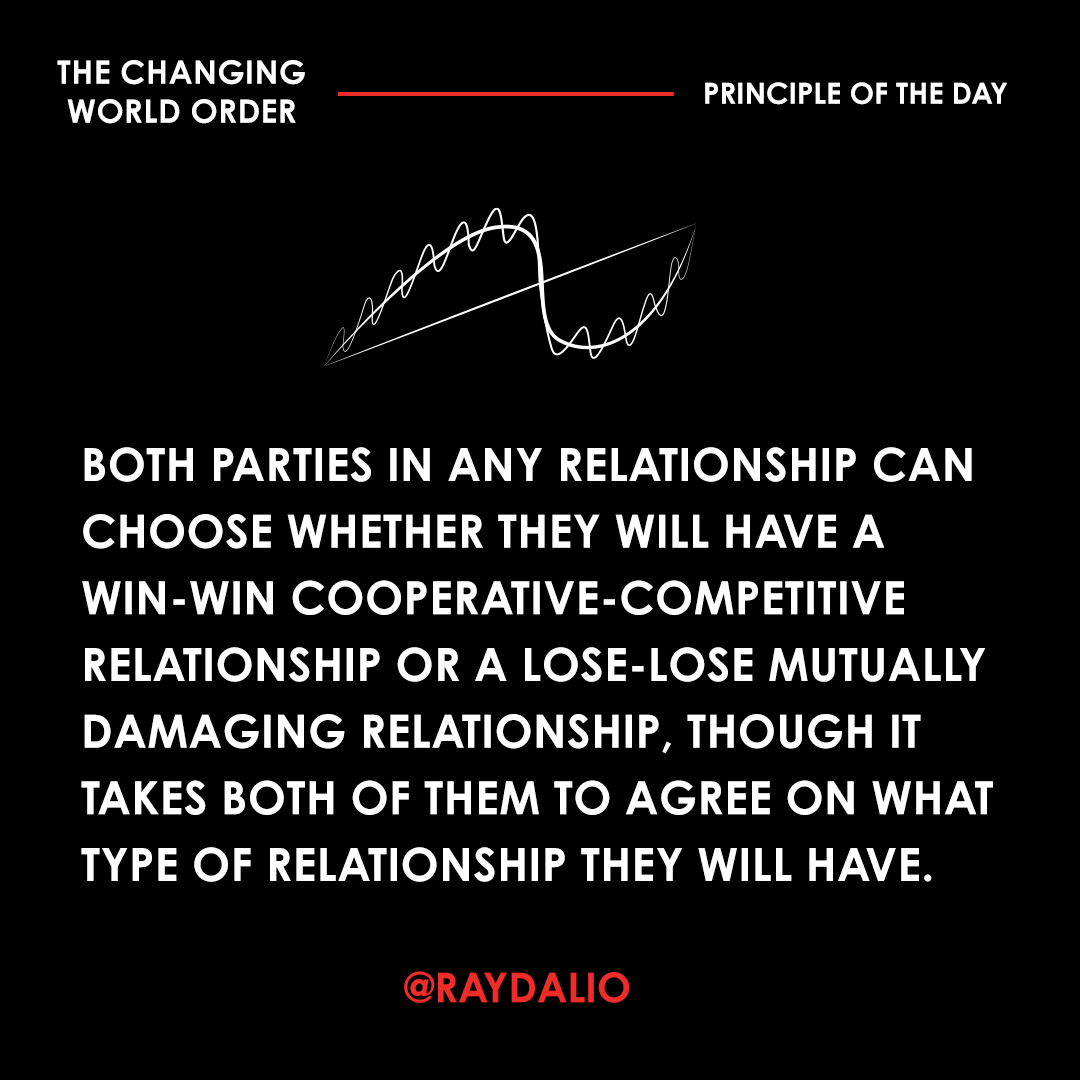
Some ways of thinking will serve you well for some purposes and serve you poorly for others. It is highly desirable to understand one’s own and others’ ways of thinking and their best applications. Some qualities are more suitable for some jobs. (1/4) 

For example, you might not want to hire a highly introverted person as a salesman. That’s not to say an introvert can’t do that job; it’s just that a gregarious person is likely to be more satisfied in the role and do a better job. (2/4)
If you're not naturally good at one type of thinking, it doesn't mean you're precluded from paths that require it. It does, however, require that you either work with someone who has that required way of thinking (which works best) or... (3/4)
...learn to think differently (which is difficult or even impossible).
That’s why I’m so excited to have shared PrinciplesYou with you. And I’m thrilled that the Dot Collector is coming soon too. Stay tuned for more. bit.ly/3vzYY13 #PrinciplesYou (4/4)
That’s why I’m so excited to have shared PrinciplesYou with you. And I’m thrilled that the Dot Collector is coming soon too. Stay tuned for more. bit.ly/3vzYY13 #PrinciplesYou (4/4)
• • •
Missing some Tweet in this thread? You can try to
force a refresh






